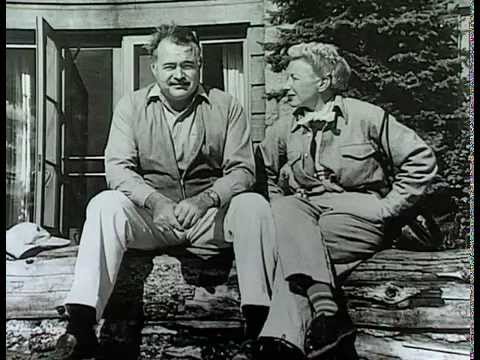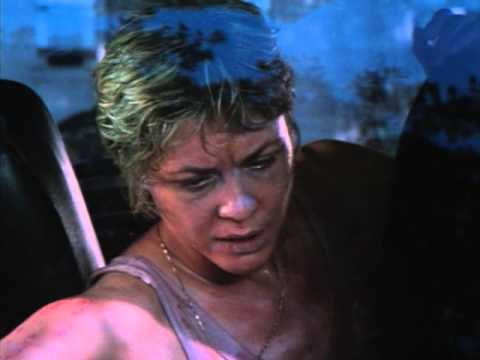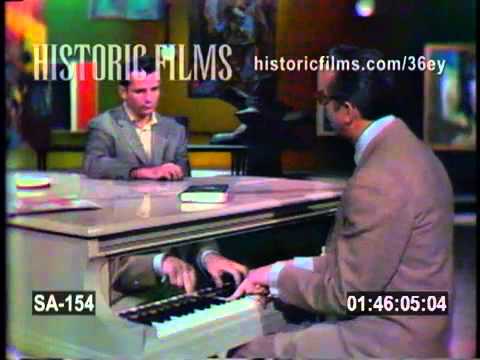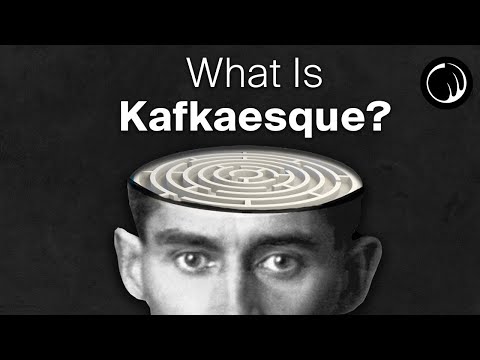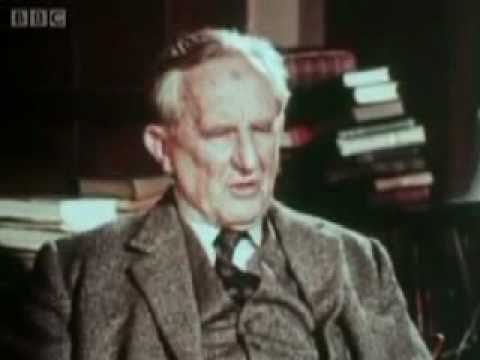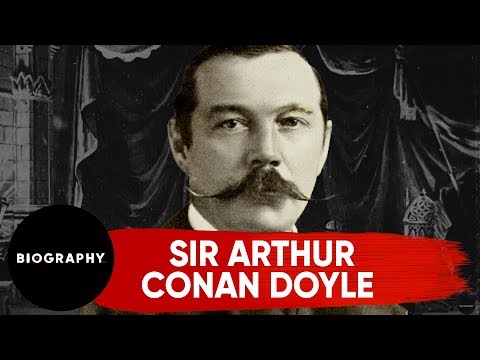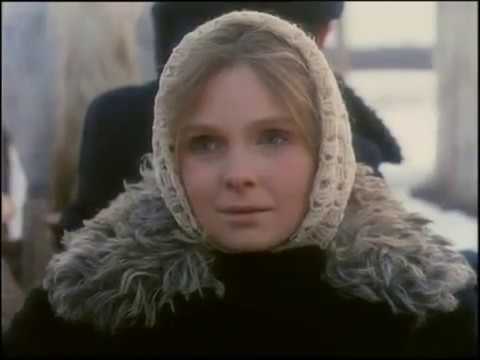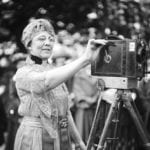Some of the world’s most talented writers are well known for penning their famous works, but their personal lives are another story. These ten writers led vastly different and interesting lives, and while there are numerous facts about them, these ten are some of the most fascinating. 10 Dystopian Books You Need To Read To Understand Today’s America
10 Ernest Hemingway Nearly Died In Back-To-Back Plane Crashes
Ernest Hemingway led an incredible life, and when you take a look at all the things he did, it’s no easy task finding only one interesting thing about the guy. During WWI, he served as an ambulance driver, he earned the Italian Silver Medal of Bravery and the Bronze Star. He went on to cover the Spanish Civil War as a journalist, and served as a correspondent for Time magazine during WWII — it’s fair to say the man lived an extraordinary life, but it was almost cut short by two plane crashes in 1954. The first came when he and his wife boarded a sightseeing charter flight from Nairobi to the Murchison Falls on the lower Victoria Nile River. The plane clipped a utility pole and crashed, leaving the passengers and crew in need of medical attention. They boarded another flight to Entebbe, but the plane exploded on the runway, severely injuring Hemingway. When he and his wife finally made it to Entebbe by truck, the local journalists had already reported his death, making it possible for the Hemmingways to read their own obituaries.[1]
9 Stephen King Doesn’t Remember Writing Cujo
Stephen King is one of the most prolific writers in modern times, having written nearly 100 novels throughout his half-century-long career. While it would make sense that he wouldn’t remember every detail that went into every aspect of a novel, there’s one book he doesn’t remember writing at all, and it’s also one of his most famous. King wrote Cujo in 1981, making it his eleventh finished novel, but he doesn’t remember working on it, writing it, or even having it published. King explained his gap in his book, On Writing, where he said, “There’s one novel, Cujo, that I barely remember writing at all. I don’t say that with pride or shame, only with a vague sense of sorrow and loss. I like that book. I wish I could remember enjoying the good parts as I put them down on the page.” King explained that the reason he has no memory of that particular writing experience was due to his alcoholism and cocaine addiction. He was drinking a case of beer a night and has since dealt with his addictions, saying he has been sober for decades.[2]
8 Jack Kerouac Never Learned How To Drive
Jack Kerouac was more prolific a writer than many people realize, and by the time he passed away in 1969 from acute liver damage, he had written a total of 20 novels. Despite having an extensive bibliography, Kerouac is best known for On the Road, which was published in September of 1957. The author was praised for his work about the Beat Generation, which was compared to the likes of The Sun Also Rises, a novel for the Lost Generation. Kerouac’s book became a best-seller, and it was based on his travels across the United States. On the Road was Kerouac’s second novel, and it helped establish the Beat Generation as it existed in the United States. The strangest thing about the book and Kerouac himself is that the man never learned to drive. The writer of a book about traveling the United States didn’t have a driver’s license, nor did he want one.[3] To get around, Kerouac relied on his pal Neal Cassady and busses, never taking the wheel himself, which is surprising given the line, “What is that feeling when you’re driving away from people, and they recede on the plain till you see their specks dispersing.”[4]
7 George Eliot Was Not The Man People Thought He Was
George Eliot was a prominent Victorian novelist, who wrote seven novels known for their realism and insight into the psyche with Middlemarch touted as one of the greatest novels of all time. Eliot’s books were incredibly successful, but many people who read them didn’t know that George Eliot was a pen name belonging to Mary Ann Evans. While women were able to write under their own names during the mid to late 19th century, she opted to let everyone believe the work she produced was coming from the mind of a man rather than a woman. Female authors of the era were predominantly writing romance novels, and if you’ve ever read a book “written by” George Eliot, you know those books are all about life in provincial England. Her decision to write under the pen name made it possible for the world to take her novels seriously, but there was another reason. Evans was a well-known editor and critic, and she wanted to distance her fiction from her separate career. She may have also been interested in keeping her private life separate to avoid a scandal that would have risen due to her relationship with a married man.[5]
6 Franz Kafka Never Finished Writing A Single Book
Franz Kafka is one of those writers most people learn about in high school by reading his most famous work, a short story titled “Metamorphosis.” His writing style has influenced literature since his death in 1924, and he is well regarded as one of the more prominent literary figures of the 20th century’s modernist movement. His use of bizarre and surreal situations managed to tell a story based on themes most writers would typically avoid, and his work was unique to the point that it spawned the term “Kafkaesque” to describe works similar to his writing style. Watch this video on YouTube Despite being one of the most well-known writers of his age, Kafka never actually finished writing a novel, though he did see several stories published during his life. Three of his novels that did make it to print were all put together by his friend and literary executor, Max Brod, after Kafka’s death. As it happens, Kafka wanted his friend to destroy the unfinished novels and all of his other work, but Brod refused to carry out his wish. Instead, he used Kafka’s notes and what he knew of the man to complete his novels, which remain in print to this day.[6] 10 Books That Were Banned For All The Wrong Reasons
5 J.R.R. Tolkien Worked As A Researcher For The Oxford English Dictionary
John Ronald Reuel Tolkien is one of the 20th century’s greatest authors, but he was also a poet, philologist, and academic. His work in the realm of high fantasy created the world of Middle-Earth through The Hobbit, The Lord of the Rings trilogy, and The Silmarillion. Tolkien’s work continues to influence all of fantasy, and he is often considered to be the so-called “father of modern fantasy literature.” While his work as a fantasy novelist is well known, he spent time working for the Oxford English dictionary following his service in World War I. His work on the dictionary was the first civilian position he held after leaving the military. He spent much of his time working on the history and etymology of words beginning with the letter W. His specialty was researching words of Germanic origin. Tolkien gave the world a better understanding of the words “walrus,” “wampum,” and “waggle,” among others. Language was one of Tolkien’s strengths, and after his work on the dictionary, he spent a good chunk of the 1920s translating Beowulf, though it wasn’t published until 2014, nearly 90 years after he finished it.[7]
4 Sir Arthur Conan Doyle Was A Believer In The Supernatural
Sir Arthur Conan Doyle was both a writer and a doctor who is best known for creating the character Sherlock Holmes in 1887. Holmes is one of the most well-known literary figures in history, as he’s been the subject of novels, short stories, television series, and films. One of the most alluring aspects of Sherlock Holmes is that he uses logic and reason to discover the nature of a mystery, earning him the distinction of being the greatest detective in the world. Knowing the nature of Holmes, it may come as a surprise to learn that Doyle was all about mysticism and the supernatural world. Through those interests, Doyle became a close friend to Harry Houdini, the most famous illusionist of all time. Houdini was open with his friend (and fans) that his illusions were the product of illusion and trickery, but Doyle wasn’t convinced. The author believed that Houdini possessed supernatural powers, making it possible for him to do the amazing things he did.[8] Houdini resented the implication, as he was staunchly opposed to the Spiritualism movement of the 1920s. He routinely exposed spiritualists as frauds, leading him and Doyle to have a rough and public falling-out over the author’s insistence on Houdini’s spiritual abilities.
3 George Orwell “Borrowed” The Plot Of 1984 From A Book He Reviewed
George Orwell was one of the most respected English novelists of his era, and his works on the evils of totalitarianism (socialist or fascist) ensure his work is read by high school students every year. He is best known for two books, Animal Farm and Nineteen Eighty-Four. The latter told the story of a dystopian future society that traded personal freedoms for security, replaced historic facts with convenient lies, and redefined (or banned) words to destroy free thought and speech. The subsequent authoritarian state’s use of mass surveillance mirror a worst-case scenario that could play out in any society. Nineteen Eighty-Four: A Novel is arguably Orwell’s most significant work, but surprisingly, he “borrowed” the idea from another novel. A few years before publishing his book, he published a review of Yevgeny Zamyatin’s We, which was set “1,000 years after a revolution that brought the One State into power.” Orwell was critical of We, and he even noted that it “is on the whole more relevant to our own situation.” He felt Zamyatin’s book wasn’t put together well, so he took elements of We and wrote them into his own book three years after writing his review.[9]
2 Louisa May Alcott Served In The Civil War
Louisa May Alcott is one of the best-known American Novelists of the 19th century, having written numerous novels and short stories. She wrote many books in her career, though Little Women stands as the novel that earned her a place in history. That book is set in the Alcott family home in Concord, Massachusetts, and is based loosely on her early life, but reading it doesn’t touch on some of the more interesting aspects of the author’s early years. There’s a lot about Alcott’s life that isn’t covered in her novels, though she did write numerous short stories and letters over the years. In 1860, Alcott began her writing career with the Atlantic Monthly, but when the Civil War broke out, she volunteered. She worked as a nurse in the Union Hospital in Georgetown between 1862 and 1863. She planned on serving for three months as a nurse, but halfway through her tour, she contracted typhoid and nearly died. Her letters from that time were revised and published in Commonwealth, and later in Hospital Sketches. These works brought her critical acclaim, ensuring a lasting career as a writer. In 1868 she published Little Women and quickly became one of the most-read novelists of her day.[10]
1 Boris Pasternak Refused The Nobel Prize In Literature
While the name Boris Pasternak may be unfamiliar to Westerners, he’s one of the 20th century’s greatest novelists. His earlier works in poetry helped him establish a career in literature, making it possible for him to write a story that takes place between the Russian Revolution of 1905 and WWII. That book was Doctor Zhivago, and both Pasternak and his book have an interesting story. Pasternak was prohibited from publishing the book in the Soviet Union, so he managed to smuggle his manuscript to Italy for publication in 1957. The following year, he was awarded the Nobel Prize for Literature. One of the most highly coveted awards a writer can receive is the Nobel Prize for Literature, and even being considered is something few writers can claim. When it came time for Pasternak to accept his award, he refused. Ultimately, he had little choice, as the Communist Party of the Soviet Union forced him to turn it down. He did so via a telegram, which read, “Considering the meaning this award has been given in the society to which I belong, I must reject this undeserved prize which has been presented to me. Please do not receive my voluntary rejection with displeasure.” Ultimately, his descendent accepted the award in his name in 1988, and Doctor Zhivago has been taught in Russian schools since 2003.[11] Top 10 Modern Horror Novels More Terrifying Than A Stephen King Book Read More: Twitter Facebook Fiverr JonathanKantor.com
